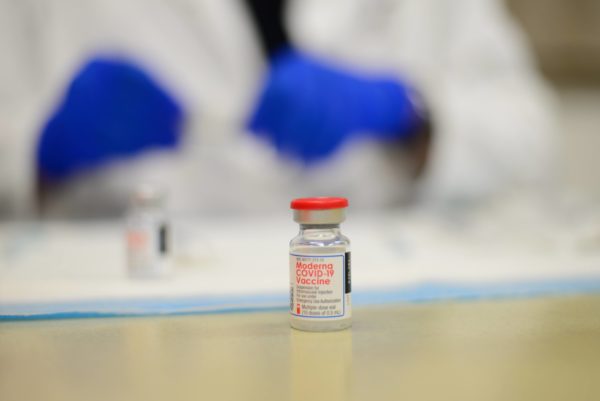
Pregnant women worried about COVID-19 face a dilemma. They’re at high risk for serious medical complications from the disease, but the vaccines also have yet to been tested on expectant mothers because they’re considered medically vulnerable.
It’s a Catch-22 that makes some moms-to-be hesitant to get the shot.
“It’s a risk either way. It’s not a fun position to be in, I will tell you,” said Makenzie Rose.
Rose had only known she was pregnant for two days when she got the call saying there were extra vaccine doses in Anchorage, if she moved fast. She got in the car and got the shot.
All Alaskans 16 and older are now eligible to receive the COVID-19 vaccines. But with limited vaccine data on pregnant women, many are wrestling with the question of whether they should.
Rose had thought about her decision already. She had talked to friends and doctors about the vaccine while she was trying to conceive. Even so, she said she still doubts her choice sometimes.
“Everyone is saying, ‘Well, just make your own decision.’ It’s really hard to make your own decision because you care so much about the health of your kid, of your unborn child,” she said.
Rose also has a 2-year-old at home.
“I just feel like nothing can happen to me right now,” Rose said. “Like, I have a kid I have to take care of. It’s a doozy.”
Rose has been fully vaccinated for about two weeks. Her recent ultrasound came out normal and healthy, with a strong heartbeat. She said she’d make the same decision again, but the uncertainty is hard — she wanted a clear green light from a medical professional, and it just wasn’t coming.
“It’s a little bit of a tricky subject. There’s not a really good straightforward answer,” said Dr. Emily Rosenfeld, an OB-GYN in Juneau.
Rosenfeld said she talks her patients through their risk level to help them make a choice. They discuss things like preexisting conditions, age and occupation. But she doesn’t feel comfortable making recommendations, she said.
“It kind of becomes more of a kind of benefit-risk conversation with the patient.”
The Centers for Disease Control and Prevention are tracking the pregnancies of about 2,000 women who have been vaccinated for COVID-19. Of those, 275 have given birth. It’s a really small sample size, but CDC says there haven’t been any issues.
That stands out for nurse consultant Sherrell Holtshouser. She’s worked for the state health department’s maternal and child health division since the 1970s.
“I have a favorite niece. And she asked me this question because she is six weeks pregnant,” she said.
Holtshouser told her to get the shot.
“We don’t have any evidence that would cause us to be hesitant or have concern. But we certainly have information, more and more, that’s telling us that pregnant women are at high risk,” she said.
Holtshouser says there’s a good reason pregnant women are typically left out of clinical trials: They are more vulnerable. But for her, the reward outweighs the risk when it comes to the vaccine.
Pregnant women who get COVID-19 are more likely to need intensive care or get put on a ventilator than their peers. In certain age groups, they are twice as likely to die. Holtshouser said she’s also concerned severe illness could result in problems for a baby, such as preterm birth.
The American Academy of Obstetrics and Gynecology and the Society for Maternal Fetal Medicine say it’s unethical to withhold vaccines from pregnant or lactating women, even though safety data is lacking.
Makenzie Rose, the pregnant woman with the toddler at home, said for her it was a crash course in risk assessment.
“I think for a lot of women, it just it feels really high stakes. Because it is high stakes. It’s your kid,” she said.
KTOO talked to a number of women who didn’t want to speak on the record, but were too nervous to get the vaccine.
The state of Alaska doesn’t track whether or not women are pregnant when they get vaccinated, so there’s no data about how many pregnant women have opted in. But women can choose to self-report to the CDC — which more than 30,000 women in the nation have done.
Editor’s Note: Makenzie Rose is an employee of CoastAlaska, an organization that provides business services for KTOO and other public media stations in Southeast Alaska.




